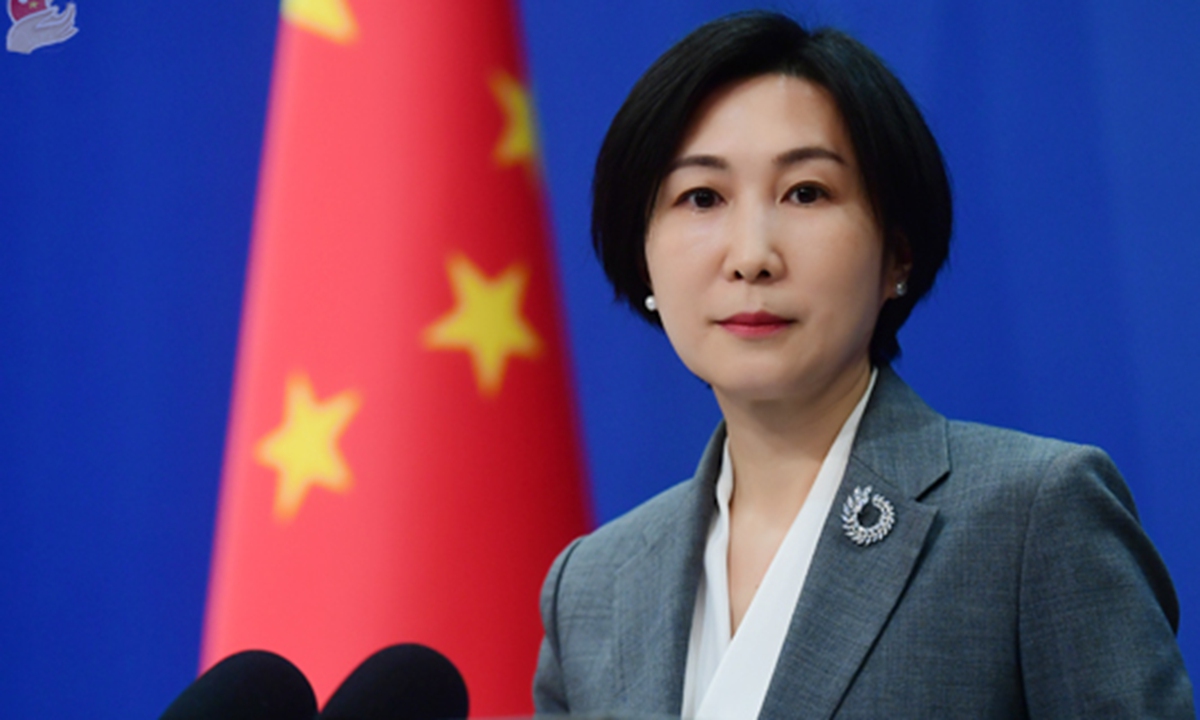Chinese FM urges US to stop illegal unilateral sanctions, long-arm jurisdiction practices

Chinese Foreign Ministry spokesperson Mao Ning
The US' move to expand semiconductor export ban on China to companies of Japan, Netherlands - a typical example of 'long-arm jurisdiction' - has seriously harmed the principle of sovereign equality of states, infringed multilateral international order which UN is at the core, distorted normal global trade, and hurt the interest of companies in individual countries, China's Foreign Ministry said on Friday.
China's Foreign Ministry spokesperson Mao Ning said at a regular press briefing on Friday that the US has been abusing long-arm jurisdiction over recent years in "an unprecedented scale," with targets continuously expanding.
"The US' long-arm jurisdiction is an arbitrary judicial practice, wielded by the US government on the strength of its national power and financial hegemony, to enforce extraterritorial jurisdiction over entities and individuals of other countries on the ground of its domestic law," Mao said, while urging Washington to stop illegal unilateral sanction and long-arm jurisdiction, and fulfill its global responsibility as a permanent member of the UN Security Council.
According to Mao, as of the end of 2021 financial year, the US has imposed 9,400 sanction measures, and the targets of long-arm jurisdiction practice involve China, Russia, Iran, Syria, North Korea, Cuba, France, the UK, Germany and Japan.
She added that successive US governments have abused economic coercion and prioritized sanction as the first option in solving diplomatic issues, which not only failed to achieve desired results but also led to humanitarian disaster.
Mao quoted analysis by the US Brookings Institution as saying that during the height of the pandemic in Iran, US sanctions could have caused up to 13,000 deaths.
"To maintain economic and technological leading position, the US has generalized the national security concept and abused export control measures, which disrupts the global supply chain stability, and goes against the principle of market economy and fair competition the US has always touted," Mao noted.
Bloomberg reported in late January that the US reached a secret agreement with the Netherlands and Japan to restrict exports of some advanced chip-making tools to China, including advanced lithography tools. The Netherlands has shown constant resistance to US' pressure over chip export controls on China.
In a phone call between Chinese Foreign Minister Qin Gang with Dutch Deputy Prime Minister and Foreign Minister Wopke Hoekstra in January, Hoekstra said the Dutch side will continue to handle trade and economic issues with China "in a responsible way," which analysts said suggested a certain level of resistance to meekly follow US order.
Global Times



